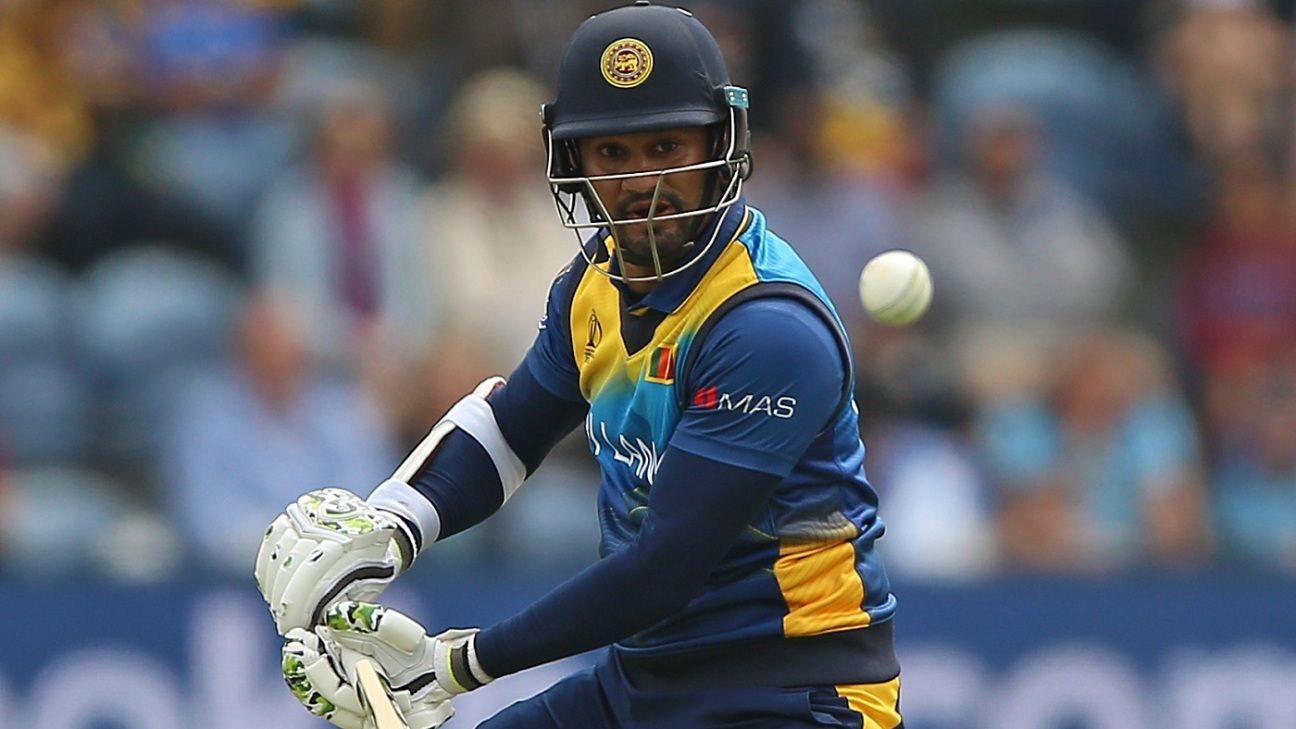
Whatever else you might say about Chandika Hathurusingha, the man does not do incognito. If you have paid him any attention over the past few years, chances are you have an opinion. More than likely, it is mighty sharp.
"He has great cricket knowledge," is something people say of him. Well that one, almost everybody can agree on. But what about: "He is a great coach"? This is not so universally held.
If you are a Hathurusingha hater, you probably hail from Bangladesh or Sri Lanka. His tenure at New South Wales did not seem to prompt such polarising opinions. In much higher profile roles in South Asia, though, where sports meld with politics, and cricket plays a role in the national wellbeing (more true for some South Asian states than others), he has been an unapologetic ruffler of feathers.
A month into his job, in Bangladesh, the superstar in the team, Shakib Al Hasan, was suspended for some months for "serious misbehaviour" with the coach. In Sri Lanka, Hathurusingha was part of a decision to sack Angelo Mathews as captain, and axe him from the limited-overs sides entirely over fitness issues last September. It was the selection committee, then headed by Graeme Labrooy, that finalised that call, but months later, Mathews' relationship with Hathurusingha had soured to the extent that in the course of batting an entire Test-match day in Wellington, Mathews dropped to the ground, completed a set of press-ups after and gestured pointedly towards the dressing room. It was only a little more polite than flipping the bird.
ALSO READ: Nuwan Pradeep ruled out of Bangladesh game after blow to bowling hand
And yet, can you argue with Hathurusingha's results? On his watch, Bangladesh made the knockouts in a World Cup for the first time, beat India and South Africa in ODI series at home, defeated Sri Lanka in an away Test, and made the semi-final of the 2017 Champions Trophy. In general, they became a serious force in world cricket for the first time. Specific players may have had grouses; Mahmudullah was dropped for the 100th Test - the one they won in Colombo - and Mominul Haque was edged out of the Test side. But if you try to argue that Hathurusingha did not leave Bangladesh (or should that be abandon Bangladesh?) in an immeasurably better place than he found them, then friend, you have let your Hathu-hate get the better of you.
Among the cornerstones to his success in Bangladesh, Hathurusingha felt, was his insistence that he be part of the selection committee. "If I'm responsible for the fortunes of the team, I should be given the power to choose it," has been his reasoning. Sri Lanka Cricket, who had practically pleaded with Hathurusingha to be their coach for three years, had initially allowed him this.
But here's the thing, Hathu: SLC is an untameable beast. He had the SLC board president on-side in his first few months in charge of Sri Lanka, just as he had done practically throughout his Bangladesh stint. But what if the SLC head is himself so plugged into the nation's political machinations, that the moment the governmental weather changed, that SLC president was ousted by judicial writ? Late last year, Hathurusingha lost his allies in administration, and with them the guarantee that he could have his way with the side. In February, following Sri Lanka's modest tour of New Zealand and their woeful Tests in Australia, he was in serious danger of being sacked by the governmental arm that had installed itself in place of a regular board.
And so we come to Bristol at the World Cup, where Hathurusingha is ostensibly head coach of Sri Lanka but, weirdly, it is on the opposition that bears the clearer marks of his influence. Even his critics in Bangladesh would concede that it was under Hathurusingha that this team developed the steel required to win; that it was on his watch that they began to seize key moments, the way they'd done in the victory against South Africa last week. During the Hathu years, Tamim Iqbal had become more consistent, Soumya Sarkar had begun to flourish, Mustafizur Rahman was thrown in and adorned, Mehidy Hasan got a start, and even Mahmudullah hit those back-to-back World Cup tons.
Compare this to the Sri Lanka side, which was in turmoil long before Hathurusingha arrived, and has not ceased to be in flux despite his best efforts. Last year, Hathurusingha had elevated Dinesh Chandimal to leadership, and then the selectors changed, and now Chandimal has barely been heard from for months. Captain, instead, is Dimuth Karunaratne - a man Hathurusingha seems happy to work with especially following the historic Test win in South Africa, but not one he would have ideally chosen for such honours. Save, perhaps, for Thisara Perera, there is no one in this ODI side that appears visibly altered by Hathurusingha's 18-month presence.
A good run at the World Cup could be key to changing all that. The historic Test win in South Africa, to which Hathurusingha did genuinely contribute, bought him goodwill, but it is limited-overs advances that will swing open the door those victories propped ajar. Sri Lanka still have Australia, England and India to play, so the match on Tuesday is virtually must-win. For the coach, a defeat might be a haunting by his own past successes, but nothing no one didn't expect. But if a victory helps light up Sri Lanka's campaign, maybe the team will switch to a smoother track. Perhaps Hathurusingha could still become the kind of transformer for Sri Lanka he once was for Bangladesh.















 Phone: (800) 737. 6040
Phone: (800) 737. 6040 Fax: (800) 825 5558
Fax: (800) 825 5558 Website:
Website:  Email:
Email: 






